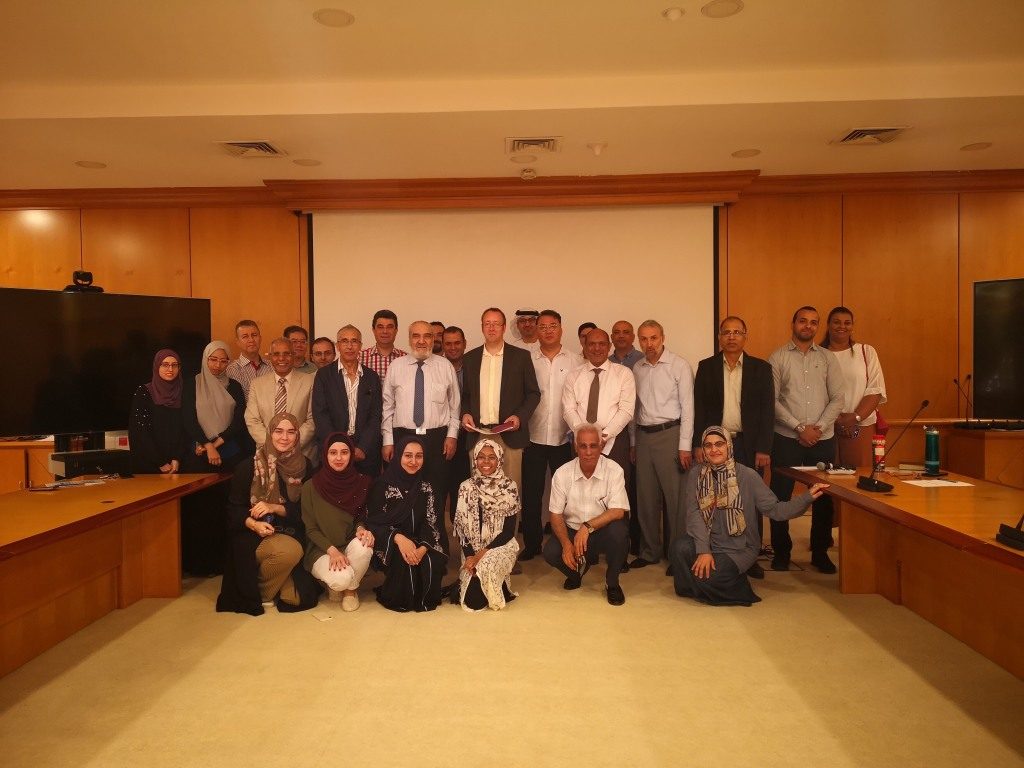The University of Sharjah is the national university of the Emirate of Sharjah in the UAE. Located in the University City, the world’s largest campus, its buildings convey the uniqueness that underpins its research activities, including in computer science and engineering. We are proud to have started cooperative research and the exchange of researchers many months ago. In this blog post, our latest joint work on multi-paradigm computating in a trilateral constellation with Penta is presented.
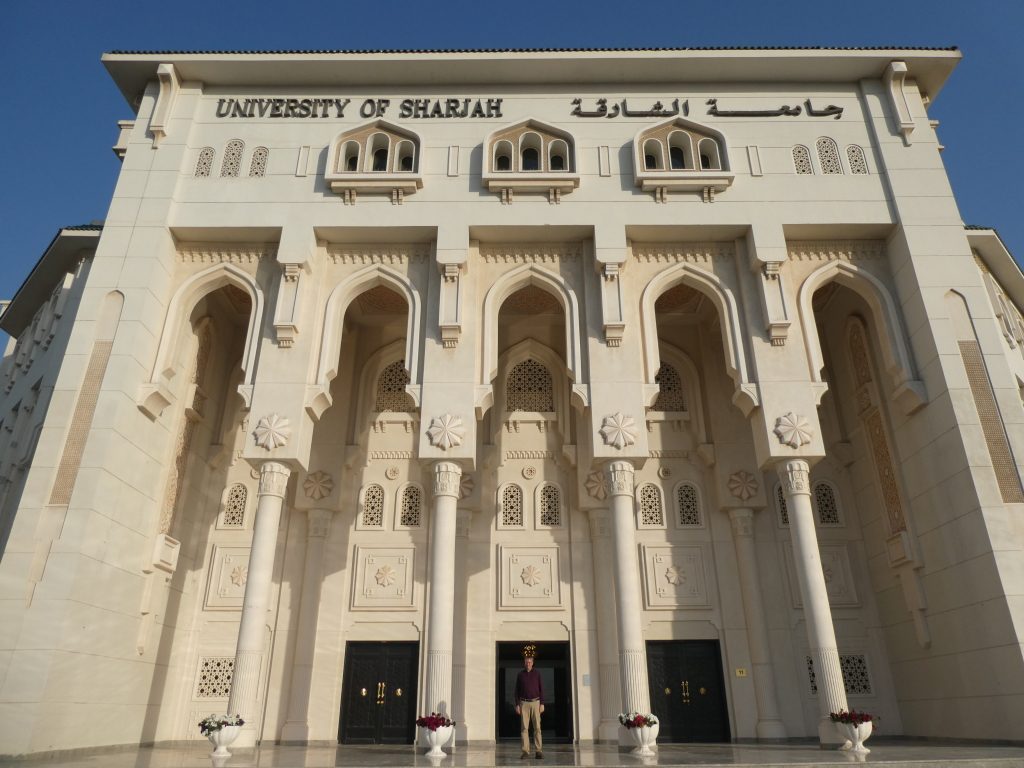
Representing the Service Prototyping Lab at Zurich University of Applied Sciences, Josef Spillner and the corresponding local researchers from the new College of Computing and Informatics and the College of Engineering (RISE OpenUAE and the Byte lab) discussed techniques to handle pressing problems when handling large amounts of data in regulated environments. The speed to compute over the data is important, as is the requirement to store practically all of it for a longer period of time. In today’s clouds and cloud-connected sensor data aggregation systems, a daily volume of several hundreds of GBs of log data is not unusual and needs to be processed in a smart way.
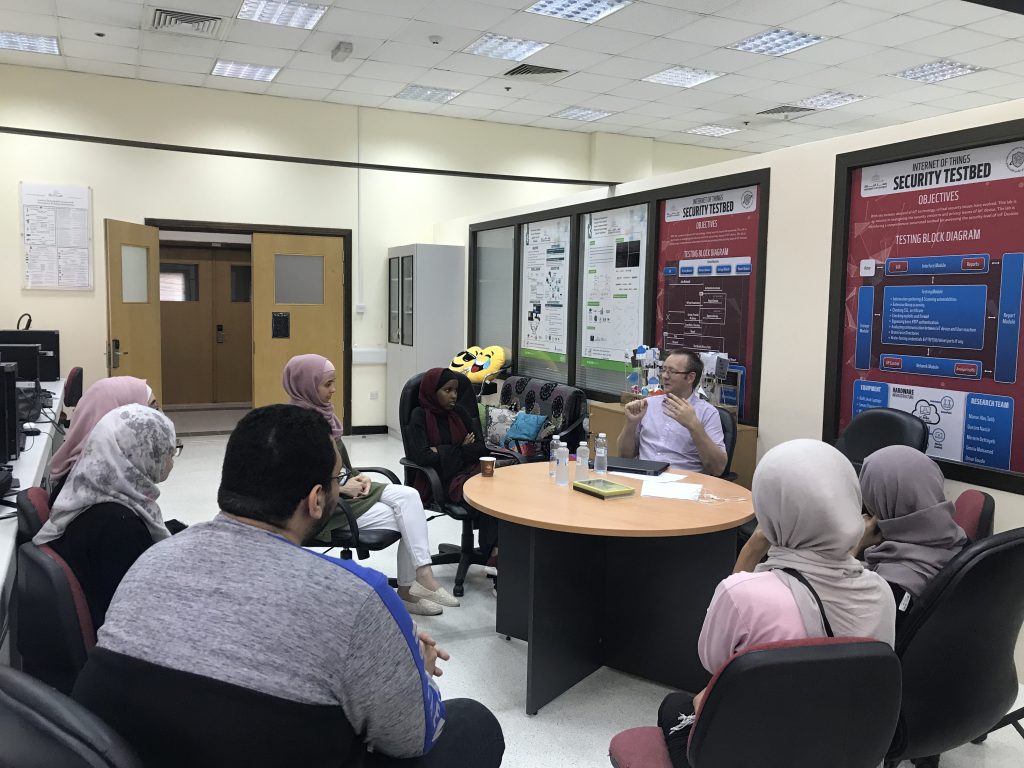
Apart from typical approaches to spread the data and computation horizontally, stealth computing is a combined technique to encode and disperse data upfront in a way that controlled computation over it is still possible while gaining advantages such as higher availability and lower latency. Several trade-offs decide about the level of restriction over the remaining types of computation. Searching over compressed data or arithmetic aggregation over encrypted data are typical cuts through the problem space that are explored on the algorithmic level but hardly applied in practice. Moreover, the degradation of computation quality can often be attenuated when allowing for approximate results instead of accurate results. This positions the problem domain into foundational computer science, seeking answers to the simple question of how we want to compute in clouds or post-cloud systems. From a software developer perspective, the key issue is how to package all of that into approachable APIs.
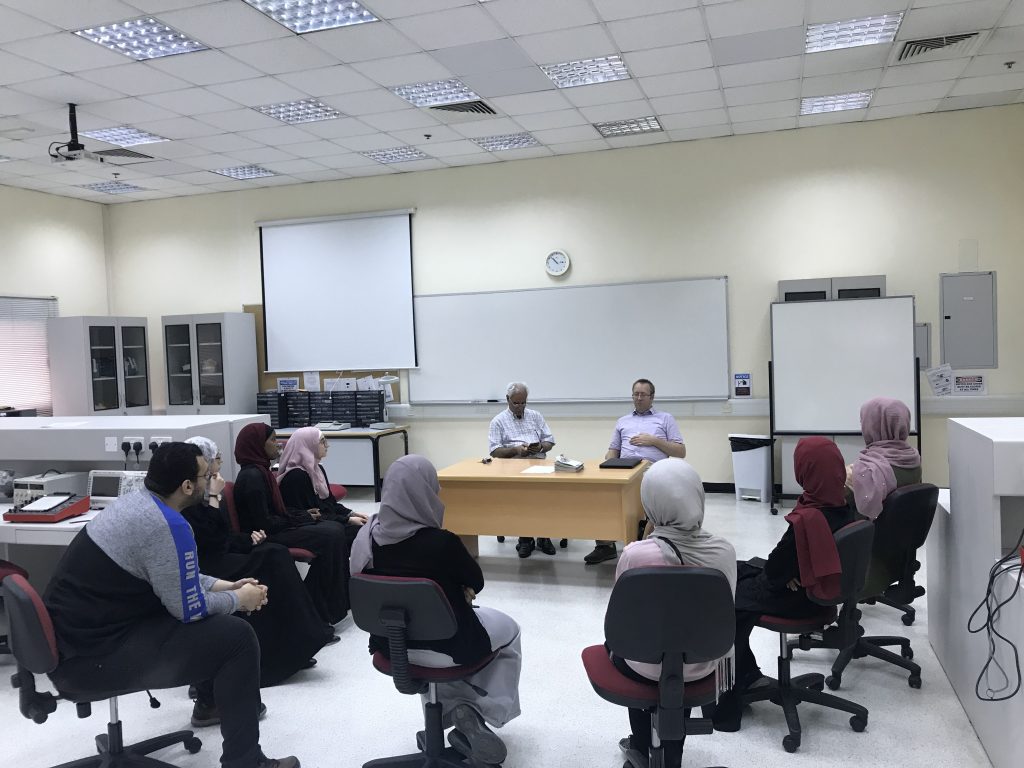
To exemplify the importance of approximate computing, the following graph shows the development of addition errors in an order-preserving cryptosystem depending on the magnitude of the operands. In absolute numbers, the deviations increase less than the magnitude, leading to a sub-constant error percentage. Due to transformations, all numbers may be transformed into ranges of 1000 or above, resulting in only around 2% calculation mismatch which for many use cases (e.g. thresholds triggering actions when sensing temperatures or similar continuous scales) are applicable in practice.
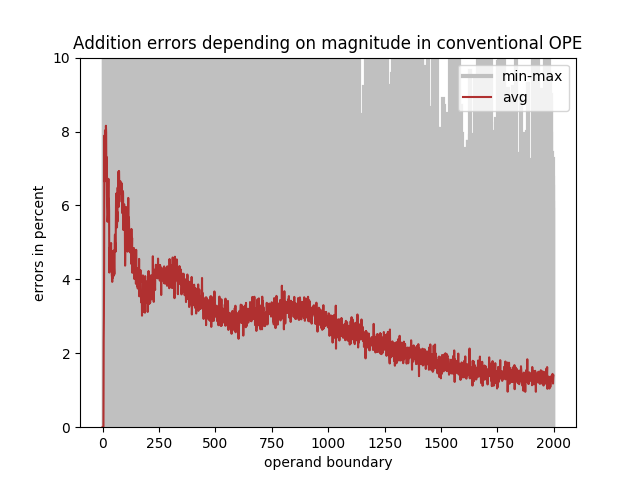
Thus, future software systems will incorporate multiple, often orthogonal computing paradigms, combining cloud computing, serverless computing, stealth computing and approximate computing to achieve high scalability for processing large streams of data in a controllable way.
For Penta, a Dubai- and Geneva-based IT management company with more than 20 years of history, exploiting these advanced computational possibilities will yield strong competitive advantages on the market where secure, fast and reliable data processing in the cloud has become a critical asset in any solution portfolio.

Another talk was given by Ilham Qasse to summarise the work on the quantitative analysis of DApps in blockchains. This talk reflected on our experience in the Azure Blockchain Meetup two weeks before. The topic of high-quality dapps and other hosted applications complements the algorithmic view by stressing the need to deliver all advanced compute capabilities as quality SaaS for the widest possible customer reach.
Apart from the technical talks, information was also passed on the Swiss funding architecture to ease the setup of follow-up projects. This travel was made possible by a Leading House MENA innovation starting grant, obviously implying that more work will be necessary to complete the innovation and transfer it into practice. With the University of Sharjah and Penta, we will tackle this challenge in the coming months. We are very thankful to University of Sharjah, and in particular for the Office of Vice Chancellor for Research and Graduate Studies, for hosting us.
